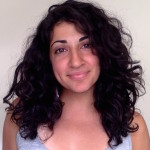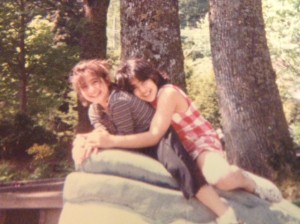I was an immigrant child growing up in Vancouver. I spent a lot of time walking alone, to and from school, through the forested neighborhoods and along the suburban roads. Every day a new experience floating in my mind. Here is where I cultivated my solitude in the act of walking from place to place. This walking would become forever a way to heal. Heal from elementary school exclusion and social drama. Heal from an eating disorder many years later. Sit with and heal from the otherness that followed me and my family the minute we stepped foot on Canadian soil.
Another place I walked to and from many times as a child in Vancouver was Vanleena Dance Academy, nestled in a semi-industrial, somewhat sketchy area behind a rather pathetic shopping mall. I walked to and from Vanleena about twice a week for ballet class. Twice a week was all we could afford to pay for expensive dance classes. I entered the space of affluent white children, many of whom spent every afternoon and evening there, going from ballet, to jazz, to lyrical to tap. Eating their after-school snacks and their dinners all in the same studio lobby. Not only did I look different, but being that I was only there twice a week meant I would always be an outsider. But those two days a week were my salvation, from elementary then high school society, from home, and from the increasingly depressing tone of immigrant life, as it revealed itself as anything but a rags-to-riches story. This would never be the land of opportunity for us.
And the fear of not having enough was something that would subsume and infiltrate a family who never had to worry about such things, and put immense stress on mom and dad so the very nature of their relationship would be forever changed.
I realized tonight that my immigrant childhood experiences forever bound up money with my otherness. That the heavy worry money causes in my life now is so deep and cutting because it reminds at every turn that I am other, and I will always have to struggle to barely survive. Not having money meant also that I couldn’t dance everyday like the other girls, so not having money exaggerated the fact that I was already obviously an outsider.
The panic and anxiety that would fill our home for as long as I can remember were direct consequences of a sense of lack that accompanies immigration and otherness. Like many immigrants, I internalized a belief that I must do in order to prove my worth. If I am not productive, if I am not doing enough, this world will not tolerate someone like me. So not only a deep anxiety about money and lack, but an almost neurotic approach to doing has characterized much of my life. This obsession with doing more and being better were, no doubt, part of the causes of my eating disorder in my early twenties.
For the last 15 or so years, my family and I have struggled for pathways to US permanent residency and found ourselves continually blocked. In that time, the amount of money we have paid immigration lawyers and the US government must be exorbitant. All in an effort to acquire the right to live here, to be here, to just be included.
We have paid a fortune for the right to be here.
We have squandered savings, we have invested hopes, we have shed tears, for the right to be here.
We have worked hard, we have worked passionately, we have given our hearts and minds, for the right to be here.
The economics don’t, and will never, add up.
I learned pretty quickly, nothing about anything is fair.
And I realized today, that money awakens such deep trauma and terror in me precisely because it picks at the scab of my otherness. It reminds cruelly that I will never belong.
I realized tonight that the free-floating, paycheck-to-paycheck life that many of my (particularly West Coast) white friends have lived could never be mine, because this lifestyle is, for me, deeply-engrained trauma. It is not something I can experiment with. It reminds me of the darkest of childhoods, in a small town where I walked everywhere alone, an immigrant girl constantly aware of not belonging.
 Raha is an Iranian-born, Canadian citizen living in the US. Currently, she is pursuing a Master’s Degree in Urban and Regional Planning at UIUC.
Raha is an Iranian-born, Canadian citizen living in the US. Currently, she is pursuing a Master’s Degree in Urban and Regional Planning at UIUC.

